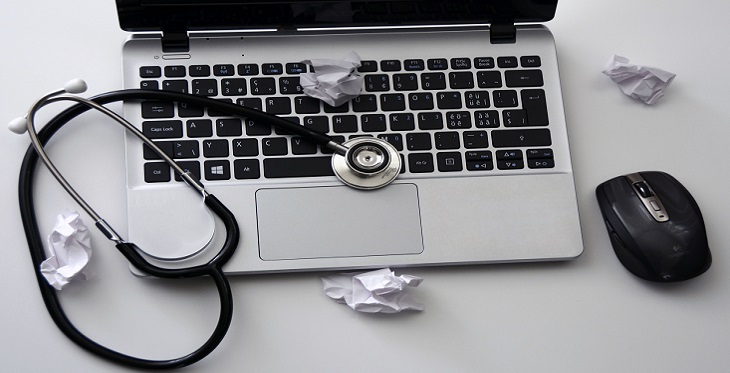Look in your purse, desk, and pocket, and you’ll be reminded of how our lives run on technology -- both personally and professionally. Nearly every industry has been affected by recent advancements in technology and data analysis, and healthcare in particular is poised to make some incredible improvements in patient care. In the next few years, patients can look forward to greater efficiency, more personalized care, and better data management—all thanks to technological advancements.
The Rise of Electronic Health Records
Technology in healthcare relies on patient data -- and lots of it. Electronic Health Records (EHR) have finally achieved widespread use in healthcare organizations (83 percent of doctors now use them), and it’s opening up at lot of options for using technology to improve patient care.
Now that EHR are the standard in hospitals and clinics across the country, the amount of patient data is growing exponentially each year, and can be leveraged to improve patient care. By 2011, there were 150 exabytes of healthcare data, a number that is growing faster and faster due to the number of different ways patient data is collected.
All of this data can help doctors monitor patients more effectively and track their progress, but it does come with some challenges. Data storage and maintenance can be expensive, and the risk for data breaches continues to grow. Healthcare organizations are beginning to drive demand for technology that can keep up with the large amount of data that is being created.
Telehealth’s Role in Patient Care
Creating a better healthcare experience requires catering to people with different needs. Often, that means reaching them somewhere outside the clinic or hospital. Telemedicine is revolutionizing patient care and making healthcare more accessible, especially for patients with mobility issues, or those who live in rural areas. This is a growing market that is expected to reach $34.27 billion by 2020, and it’s already proven its effectiveness. One ICU that used telehealth equipment and methods had a mortality rate 26 percent below the average, and released patients 20 percent sooner. As more clinics and hospitals adopt telehealth and the technology becomes more sophisticated, we’re likely to see even more impressive outcomes and improved patient care.
Creating More Efficient Patient Management
How often have you had to wait for a doctor’s appointment because your physician was running behind? Within the healthcare industry, this problem may soon become less common.
One way healthcare organizations are leveraging technology to reduce wait time is by speeding up the check-in and payment processes with self-service kiosks. One receptionist can only process patients so quickly, but supplementing staff with kiosks allows normal transactions to occur without the help of a receptionist. As a bonus, these kiosks can serve patients in different languages and even provide directions within the clinic. Pilot programs for these types of kiosks have been in progress since 2008.
A Mobile Healthcare Movement
Technology has enabled healthcare to come out of the hospital setting and become more patient-focused. Mobile healthcare uses apps and wearables to create more patient-centered approaches to healthcare, and allows physicians to help their patients become more involved in their own health. Patient data from mobile devices can be integrated with EHR, allowing it to be used to create personalized health plans. Doctors and patients alike are enthusiastic about the role of wearables and apps in healthcare, and more than 90 percent of organizations are already using them.
Technology drives everything in modern healthcare, and the patient care revolution is only just beginning. Over time, data management, telehealth, and mobile health will come together to create a superior experience and better outcomes for patients. And that’s something we can all get behind.

